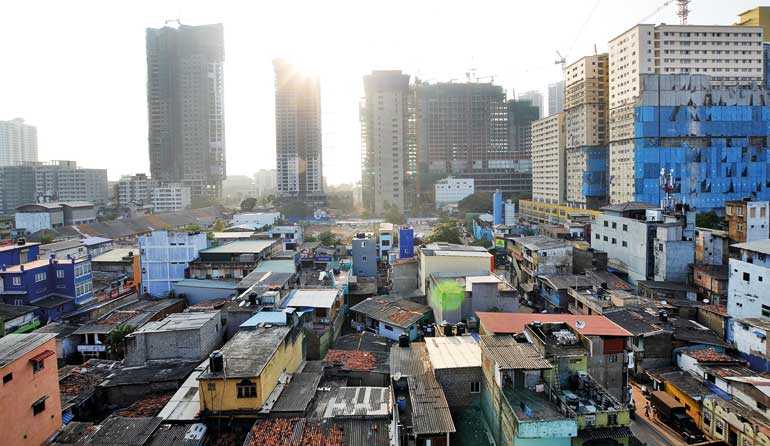Saturday Feb 21, 2026
Saturday Feb 21, 2026
Tuesday, 11 February 2020 00:01 - - {{hitsCtrl.values.hits}}
Brahmanage Premalal is a well-known visionary leader and the group Chairman of one of the largest real estate entities in Sri Lanka, Prime Group, with over 30 years of
 |
| Prime Group Chairman Brahmanage Premalal |
experience in real estate and a variety of industries as an entrepreneur.
He is a fellow member of the Institute of Chartered Management Accountants (UK), Chartered Business Administrator (Canada), a Member of Sri Lanka Institute of Marketing and holds an MBA from the Open University of Malaysia.
Premalal was awarded the UCD Entrepreneur of the year in 2011 and recognised as one of the top 100 Business Leaders of Asia by the prestigious Asia One Magazine at Asia›s Greatest Brands & Leaders awards 2017. He was also awarded the ‘Most Outstanding Entrepreneur in Sri Lanka’ for the year 2018 by the International Association of Lions Club and was honoured as an A-list business personnel by the most respected LMD Magazine in 2019.
Following are excerpts of an interview with Premalal on vertical living in Sri Lanka:
Q: What stage of the vertical living industry is Sri Lanka experiencing right now?
A: Vertical living is still a new experience to majority of the Sri Lankan population. The condominium market in Sri Lanka has only penetrated a market segment less than 10%. Hence the precise answer to the question is we are still experiencing the early stage of growth with incredible future prospects for more supply in vertical living.
Q: How can vertical living make an impact on town planning, in the cities in Sri Lanka?
A: Accurate town planning is a crucial factor for a fast-developing country like Sri Lanka. As a country, we need to observe and learn from other major cities in the region such as Kuala Lumpur, Singapore, Ho Chi Minh City and Hong Kong that have trialled and tested vertical living in town planning. Especially when considering Singapore, an island state with limited land supply, it is evident that they have successfully adopted vertical living to minimise the excessive use of land that is otherwise used for horizontal living spaces.
When considering the commercial and administrative capital of Colombo, it is vital to adapt sustainable growth while preserving green lands to foster the eco-systems. At present we are experiencing the emergence of satellite cities mainly associating the Western Province, which is a good indication of appropriate town planning.
Condominiums play a crucial factor in this process as they occupy limited land area allowing more land to be used in effective town planning. For instance, with more people moving into condominiums within a small radius of the heart of Colombo, it will help to ease the flow of traffic in the city of Colombo which is almost close to three million vehicles at present.
Therefore, yes, vertical living is the most effective solution to optimise the use of limited land spaces for ease of inner city connectivity while up lifting the quality of life.
Q: What role does it play in solving the housing issue in the country?
A: The most important factor we should not forget is that Sri Lanka is an island. It is obvious that land stays fixed while the population continuously increases. The population of Colombo stood at six million in 2017 and is anticipated to grow at a rate of 1.1%. This alone is enough reason to believe that vertical living is the future of Sri Lanka.
At present, we can observe a paradigm shift from houses built over acres of land into simple yet contemporary living spaces among the younger generations of Sri Lanka. This is mainly due to the high demand for simplicity and convenience amongst the majority of population. Some developers identified this market gap almost a decade ago and introduced midrise apartments in the most demanded suburbs of Colombo, in times when apartments in Colombo were mainly catering to the luxury segment.
In order to cater to rising demand, it is nearly impossible to continue horizontal living as we are dealing with very limited land. This is where vertical living plays a key role as one of the main advantages of condominiums is that it only occupies a very limited land extent to serve housing solutions to many. So vertical living can be pointed out as an effective solution for the ever-rising demand for housing in a country such as Sri Lanka.

The construction industry is one of the leading contributors in the service sector as it circulates millions of rupees daily. If you observe the Colombo skyline you can see multiple construction sites up and rising – Pic by Shehan Gunasekara
Q: What sustainable advantages does vertical living offer?
A: When considering sustainability in vertical living, the most important factor is quality of life. Sustainability is always about growth and wellbeing as a community. Therefore condominiums are the best suited solution to approach sustainable living as they are not always about individuals, as they cater to communities that are of similar social and financial status ensuring equal, yet quality living experiences to all.
However I do have to highlight that property developers also has a vital role to play in this regard to encourage and construct condominiums that can provide sustainable living. As a result, today we can see energy efficient condominiums that also encourage more greenery to its outlook.
Q: How can vertical living help the overall economic development?
A: The construction industry is one of the leading contributors in the service sector as it circulates millions of rupees daily. If you observe the Colombo skyline you can see multiple construction sites up and rising. These developments provide direct and indirect employment opportunities to millions of Sri Lankans.
As foreign nationals are unable to purchase land in Sri Lanka, condominiums are a safe haven for investment. As a result, with the boom of the real estate sector, we have millions of dollars injected into the economy by means of FDIs. These are good indications that vertical living developments cater to the economic development of Sri Lanka positively.